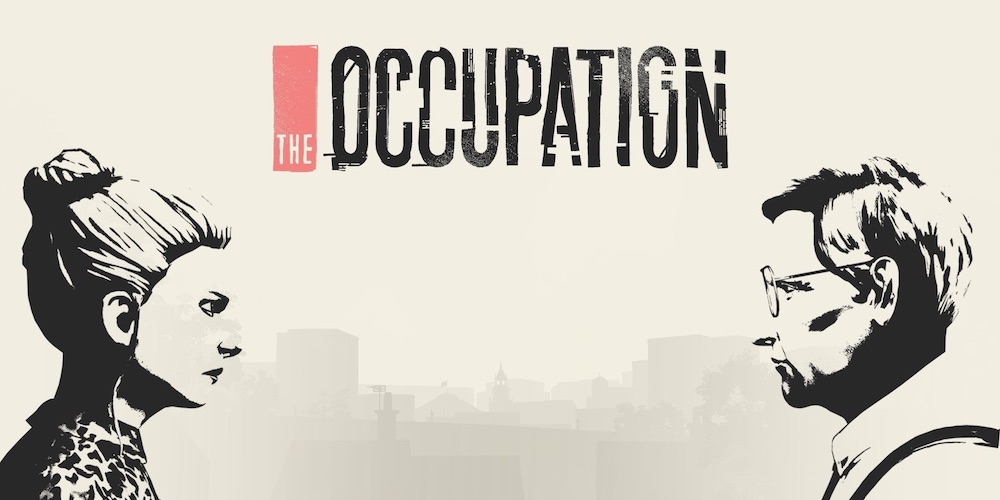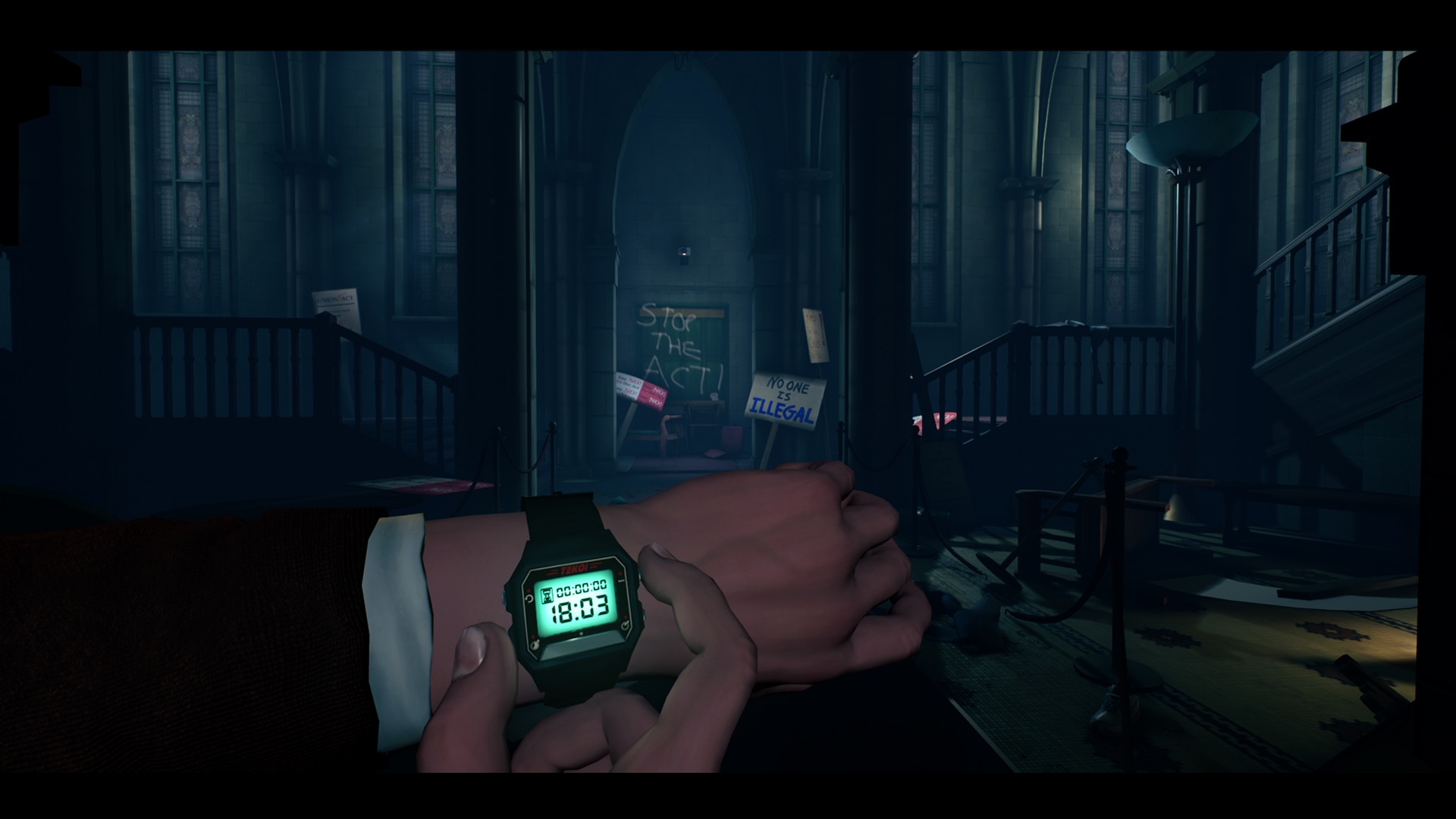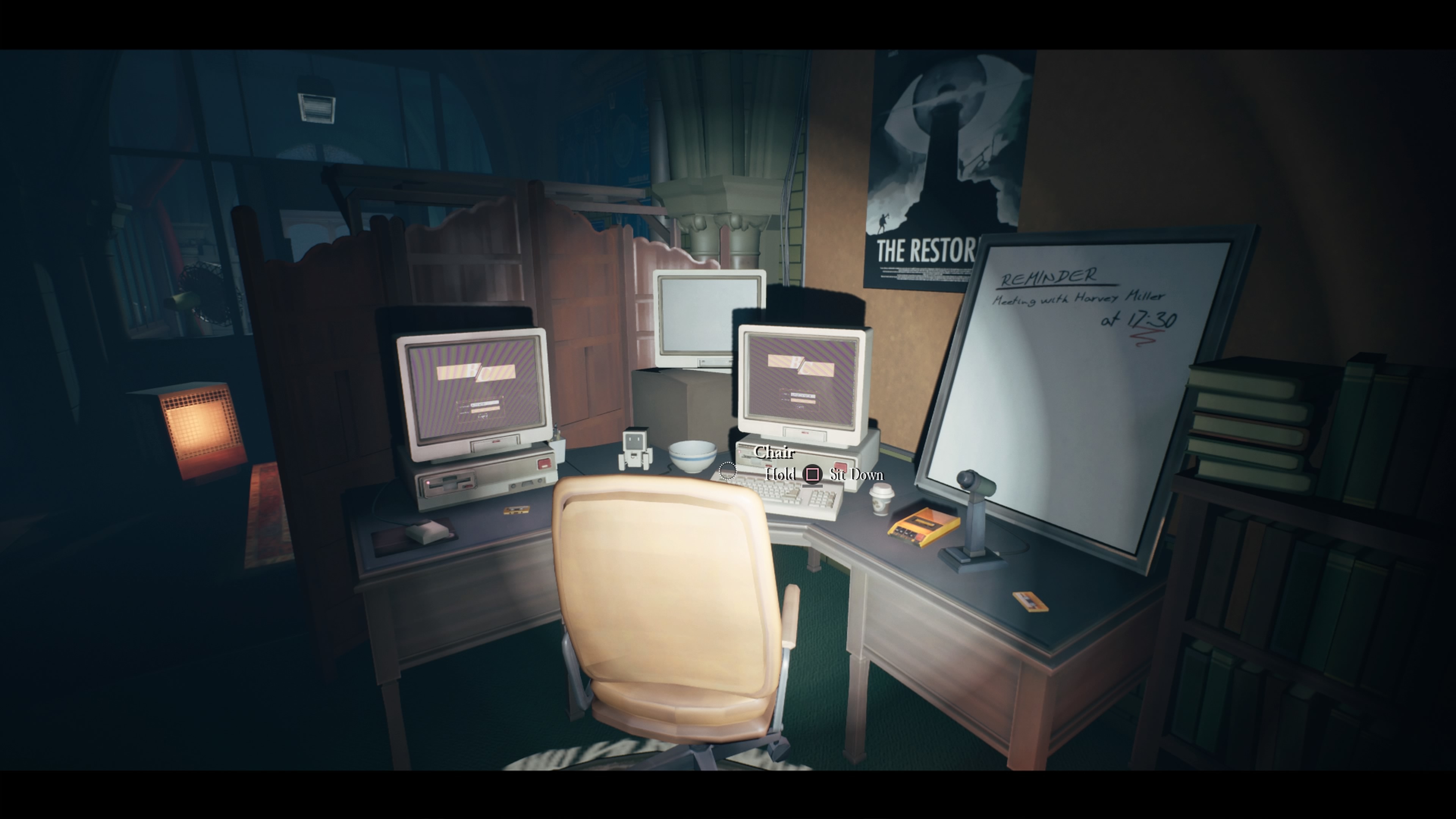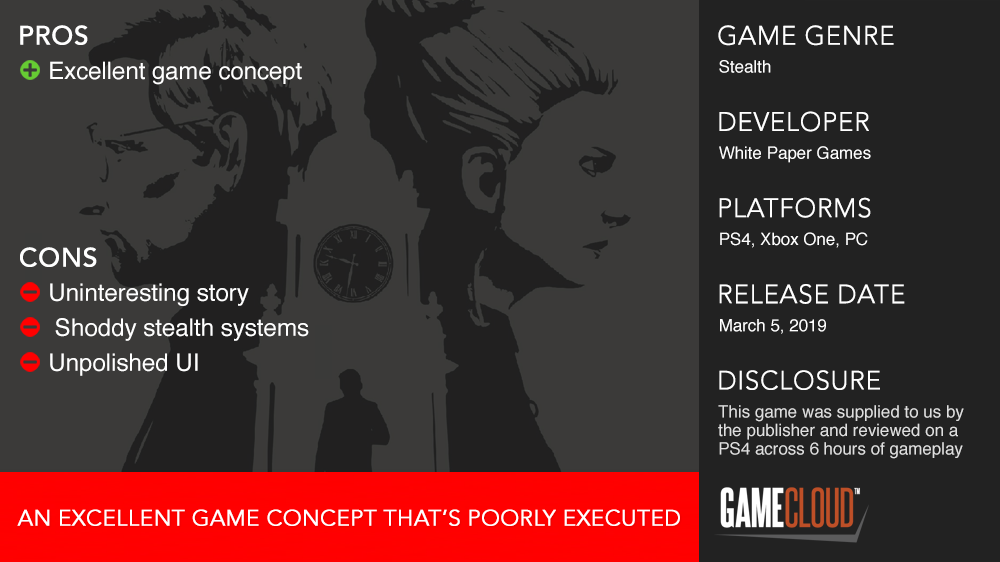
The Occupation is an unconventional game; one that combines traditional adventure game elements with a focus on stealth, a labyrinthian level structure, and a ticking clock. As a reporter, you’re tasked with following leads, collecting information, and compiling questions to ask in upcoming interviews, with a real-time countdown leading to each. It’s a game full of excellent ideas put together in ways that make a lot of sense, but the finer details of The Occupation don’t sit as well as its core concepts.

The story of The Occupation is its driving force, encouraging us to gather all the information we can to piece together the mystery at its core. Terrorist attacks and a controversial new immigration act are causes for concern in the town of Turing in the ’80s, while suspicions arise that the wrong man might be being blamed for a bombing. I love a good mystery, and obviously, it’s an excellent prime motivator for an investigative game like this, but The Occupation’s story doesn’t perform like it needs to. The truth of the situation becomes clear very quickly, only leaving the details unclear and hinting at a deeper conspiracy to uncover.
The problem is, the remaining details feel unimportant and ultimately uninteresting, while the grander plot is only just below the surface, which left me wondering for most of the game if there was something significant yet to be revealed or if I was just going through the motions until the credits. The game tells its story in confusing ways, with different perspectives and certain scenes out of order. It doesn’t have that big Christopher Nolan moment of everything coming together and making sense, though, it’s just harder to be engaged with. I never went from “what did that mean?” to “Oh, that makes sense.” I just teetered between “Does that just mean this?” and “Yeah, it’s just this.”

When the information to be gathered isn’t interesting, it becomes even more important that the act of collecting it is entertaining in of itself. This process is all about finding different keycards to access different areas, finding information and codes in notes around offices, avoiding detection by NPCs, and crawling through a whole lot of tiny vents. The catch is, this all happens within a time limit, so whatever info you can learn before your meeting is all you’ll have to work with. I’m a sucker for that Resident Evil style Metroidvania structure, where you’re finding a key or a code on one side of a building to help you get deeper into the other side, and it seems like that’s sort of what they were going for here. There are times where this really works in rewarding ways, but more often than not it’s not so exciting.
One of the reasons the game gets to be a bit of the drag is that the stealth is no better than mediocre. When seen in an area you shouldn’t be in, NPCs will head towards you to take you to security. This is where you run around a corner and crouch under a desk or climb into a vent and wait for them to walk away. I jumped into a woman’s office via the window, grabbed some stuff, she saw me and told me I couldn’t be in there, and I climbed back out of the window with no repercussions. A security guard caught me in a staff only area, I crawled into a vent a few meters away from him, as he watched me and said: “where did he disappear to?”. In both of these instances, seeing the NPCs in question later, whether just roaming about or in a vital story moment, was not in any way impacted by these encounters.

The map designs are a little problematic in this regard too. Everything looks so similar and non-descript, to the point that getting lost and figuring out which way you’re trying to go can eat up a good bit of time. Just some key features in certain rooms, or different coloured walls, or anything could have helped to make exploration a little more intuitive, but instead, I found myself relying on the signs pointing to various offices, and the conveniently marked chalk arrows in the extensive ventilation networks.
There are more objective issues with The Occupation, though, which can be pretty significant. The interface is extremely flawed in many regards. Using buttons on machines and the like is done by pointing your reticle specifically at the button in question, but where the game considers the button to be and where you see it are always hugely incongruous. To hit the play button on a tape recorder, you have to press ten centimetres to the right of the player itself. While you’re inputting a code for a safe, looking directly at the keypad, the places you need to click each button go off of the screen. It doesn’t break the game in any way; it’s just a huge mess. The dossier containing clues and leads you’ll be checking regularly is equally messy and equally annoying.

The Occupation is an excellent concept for a game, and something I hope to see done more in the future, but it failed in several regards this time around. The story is perfectly functional, but the implied intrigue is nothing more than an implication, and any curiosity I had to learn more was purely in disbelief that it could be as simple as it seemed. The mechanics and systems, particularly those built around stealth, are far from refined, and further still from “fun.” Even fundamental interface components are tremendously flawed, as well as a bunch of other technical issues throughout. I love the premise of The Occupation so much, and I genuinely hope to see more in its ilk, but I simply can’t recommend this game.











